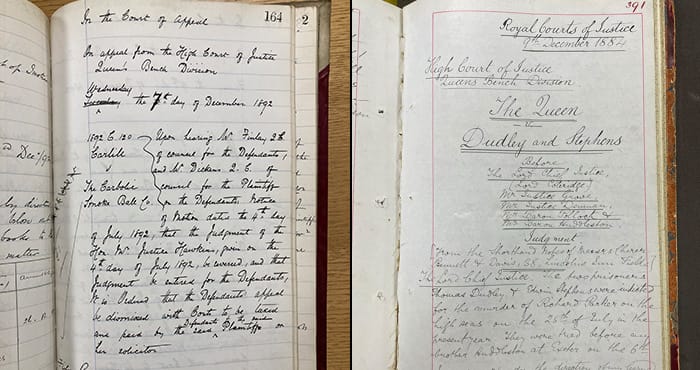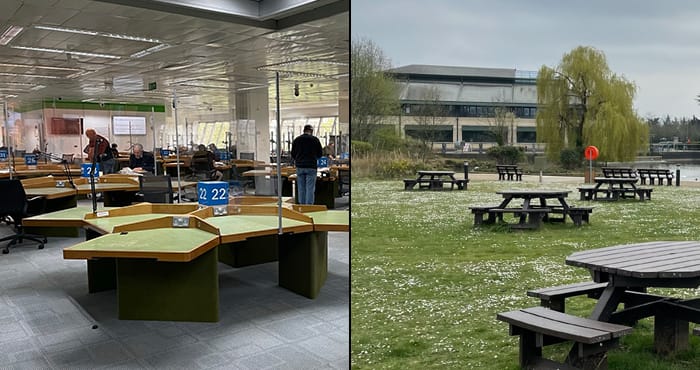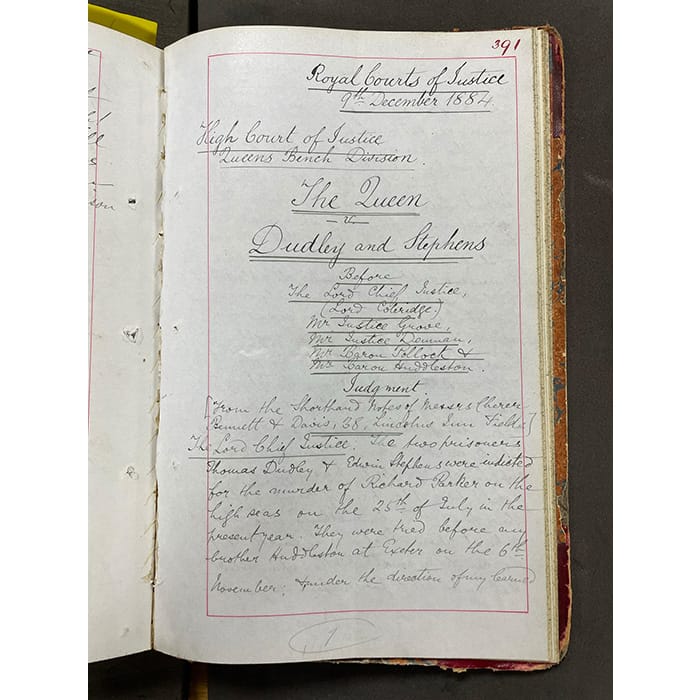A spot of Carbolic Smoke Ball over a coffee?

Law students and lawyers fed up with familiar haunts may want to check out the café and lounging opportunities at the National Archives in Kew which has become the new official public repository for judgments from across a range of courts.
From Easter, the institution’s brutalist 1970s building will be the home for a database of important court judgments. The pastel-coloured café, the picnic area around a lake and the many sofas and armchairs that are features of the site could also be a new haven for local law students.

Of course, most legal research is an online pursuit and the National Archives will be developing what it anticipates will be a huge, user-friendly case database. John Sheridan, digital director at the National Archives, tells Legal Cheek: “The ambition is that there will be many more judgments and far greater choice available over time.”
It already has a pretty awesome analogue collection of cases stretching as far back in time as 1194. Some of the most legendary common law cases are kept here including those that featured in Legal Cheek’s TikTok series.
Here’s R v Dudley & Stephens, the 19th century cannibalism case that decided that necessity was no defence to murder: if you eat your fellow man because you are starving that’s still a crime.

Also in the vaults is the actual (though IRL a bit underwhelming) written judgment of the Court of Appeal decision in Carlill v Carbolic Smoke Ball Co from 1892 which laid the foundations for modern contract law.

The new home for court judgments marks a significant change in how they are officially perceived. Up until now, judgments have been maintained without any identified purpose. Should records be kept for the benefit of lawyers and students, the parties, the press? Handing them over to the purview of the National Archives is recognition that they are first and foremost important public documents.
Dr Natalie Byrom is director of legal research at the Legal Education Foundation which recommended that the National Archives become the go-to place for court records as part of the Foundation’s work on digital justice.
She tells Legal Cheek: “We are really excited that the Ministry of Justice .. is finally grasping the nettle and establishing that court judgments are a public record and an incredibly important part of any democracy.”
Dr Byrom continued:
“Historically, the UK has had no system of recording and storing court judgments. We have delegated this responsibility to private publishers with profit motives. But courts are so powerful, citizens must have access to court records to ensure that fair decisions are being reached and there is transparency over what is actually going on in courts.”
There is a snag in all this, however: it doesn’t look as if the National Archives database will be comprehensive. This is because the courts themselves are not actually required to automatically lodge all the judgments and decisions that are made with the National Archives.
Historically, any database or source of legal judgments such as BAILII , the free resource, is reliant on clerks and judges at the various courts taking the initiative and making sure that a judgment or decision gets filed with them (estimates are, for instance, that BAILII only gets hold of 55% of the total public law cases decided). And it looks as if this rather random position will remain.
Dr Byrom tells us: “Though the National Archives is building a more user-friendly process, it still needs the Ministry of Justice to ensure courts are filing judgments as a matter of course.”
Sheridan is more positive, adding: “At the moment, there isn’t a managed process at the court end to file all judgments with us. But that is not something we can control. It is a policy decision from the Ministry of Justice in terms of what judgments can be accessed. But we are certain that in the longer term we will be opening doors as we are building the infrastructure here for widening coverage.”
In the meantime, there are plenty of sofas to enjoy whilst revising a spot of contract law or tort. With the added bonus that you could dig out the historical documents themselves.
Visit the National Archives website to find out how to visit and access the collection.
For the latest news, commercial awareness insight, careers advice and events:
Sign up to the Legal Cheek Newsletter

